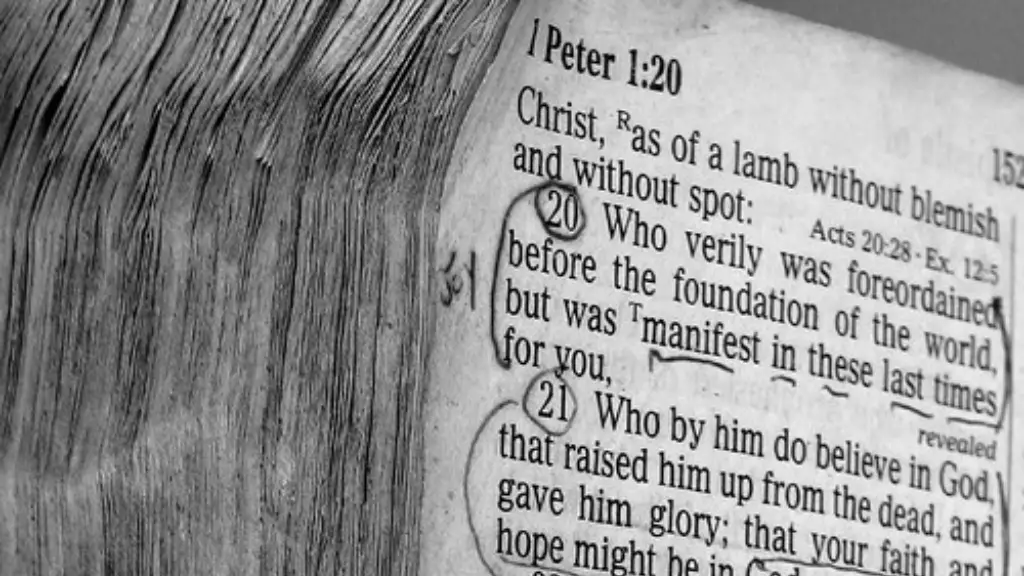Herod has long been a controversial figure in the Bible. Many have argued that he was a cruel ruler and led many atrocities against the Jews, while others have argued he was a benevolent ruler and wanted to restore the glory of the ancient Israelite kingdom. No matter what your opinion is, understanding who Herod was is important to understanding the Bible.
Herod was a ruler in Judea, appointed by the Romans. He ruled from 37 BCE to 4 BCE, though his rule was often erratic, and he was known to be a ruthless ruler. He was a member of the Herodian dynasty, a succession of rulers who were descendants of Herod the Great. He was infamous for his cruelty and often considered responsible for the death of Jesus’ relatives, which is why he is known to many as the “slayer of babes.”
Herod was a client ruler, meaning that he was appointed by the Romans and ruled over a subservient Jewish people. But his rule often bordered on despotism, and he kindled the hatred of his people through his oppressive methods. He was known to have ordered the execution of any who spoke out against him, and also was known to have committed acts of violence against his people. He also increased taxes, which made it increasingly difficult for Jews to maintain their way of life.
Despite his tyranny, some historians have argued that Herod was in fact a product of his environment and had some positive qualities. He implemented policies that were meant to benefit the people of Judea, such as improving sanitation and restoring the Temple mount. His rule can be seen as a kind of ‘restoration era’, as he sought to return the ancient Israelite kingdom to its former glory. He was also known to have been a generous ruler, offering financial aid to those in need, although this also could be seen as a way to maintain control of the populace.
That is not to say, however, that his positive actions outweighed his oppressive ones. His rule was often inconsistent, depending on what the Romans required of him. He was also a willing ally of the Romans, which led to the loss of the Jews’ autonomy. This is why Herod is often seen as a villain in the Bible, as his actions resulted in the subjugation of the Israelites.
In conclusion, Herod is a complex and controversial figure in the Bible. His rule as a client ruler was oppressive and cruel, and his willingness to do the Romans’ bidding led to the subjugation of the Jewish people. But some historians have argued that his rule also had some beneficial effects, such as restoring the Temple mount and offering financial aid to those in need. The exact legacy of Herod is still debated by historians today.
Herod’s Effects on Religion
Herod’s effects on religion were complex. On one hand, he sought to restore the glory of ancient Israelite religion, and some historians argue that his policies helped to unite the Jewish people in a common faith. On the other hand, his oppressive rule led to an inability among the Jewish people to practice their religion freely out of fear of retribution from Herod or his Roman overlords. This led to a decline in religious observance, especially among the poorer classes who could not afford to be physically present for rituals at the Temple mount.
Herod’s impact on religion also had long-term reverberations in the relationship between Jews and Christians. Herod had sought to restore the Jewish faith and eliminate any sects or cults he believed to be a threat, resulting in intense persecution of the early Christians. This exacerbate the growing rift between Jews and Christians, which is still unresolved and has had a profound effect on the history of religious hostility throughout the world.
Herod’s effects on religion are still debated today, with some making the argument that his policies helped to preserve traditional Jewish religion while others argue that his oppressive rule led to an erosion of Jewish culture and practice as a whole. The legacy of Herod’s rule is still felt in both the Jewish and Christian faiths, and is an important topic to consider in attempting to understand the history of religious hostility.
Herod and His Legacy
Herod’s legacy is complex and constantly debated by historians. On the one hand, his oppressive rule led to a subjugation of the Jewish people and a decline in their ability to practice their religion freely. On the other, his policies helped to restore the glory of ancient Israelite religion and laid the groundwork for the stability of the Jewish people through much of the Roman period.
Herod is often seen as a villain in the Bible, a ruthless ruler who committed many atrocities against his people. But some historians argue that Herod was a product of his environment and made some positive contributions, albeit ones overshadowed by his oppressive rule. Whatever one’s opinion, it’s clear that Herod was an important and influential figure in the history of the Bible and religion as a whole, and his legacy is still debated by historians today.
Herod and His Historical Significance
Herod has historically been seen as an important figure in the history of Judean politics. His rule was one of the few times in which a Jewish ruler took control of Judea, and in doing so, he set the stage for the future of Judean rule. He also had lasting effects on the relationship between Jews and Christians, one of the oldest and most heated debates in the history of religious hostility.
Herod is also an important figure in the history of the Bible, as his rule is mentioned in the gospels and is often referred to by Christian clergy and scholars. His legacy is still debated today, and understanding his impact is key to understanding the complex relationships between Jews and Christians, and the history of Judea in general.
Herod in Modern Culture
Herod has been referenced in numerous pieces of literature, from Shakespeare’s plays to the King James Bible. He is commonly depicted as a villainous figure and was even the namesake for the villain in the classical film Ben Hur. In these works, he is often used as a symbol for oppression and tyranny, and is portrayed as an example of a ruthless ruler willing to commit atrocities for his own gain.
Herod has also been referenced in modern culture, in films such as The Passion of the Christ and The Nativity Story. In these works, he is depicted in a much more nuanced way and often shown to be a ruler conflicted by both internal and external pressures, trying to find a balance between loyalty to Rome and his own people. However, his tyrannical rule still remains a part of his legacy.
No matter how Herod is depicted, it is clear that he is an important figure in the history of the Bible, religion, and culture as a whole. His legacy of oppression and tyranny still resonates today, making it important to consider the effects of his rule on both Jews and Christians.




